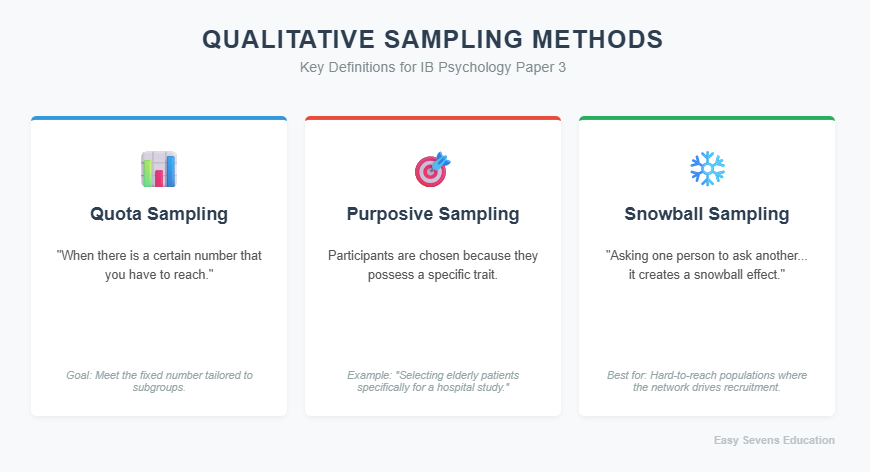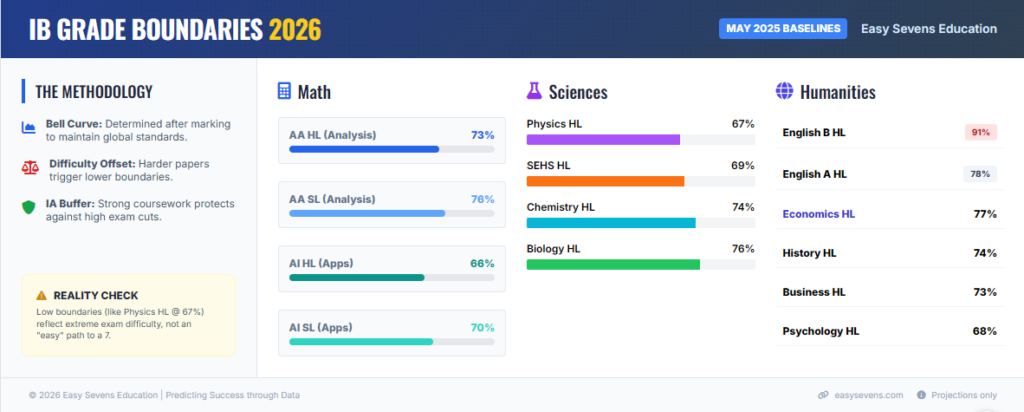Thinking about diving into the human mind with IB Psychology? You’re not alone! Many incoming International Baccalaureate (IB) Diploma Programme (DP) students are fascinated by behaviour but have heard conflicting reports about the subject’s difficulty and whether it’s truly ‘worth it’. Is it a fascinating journey into the self, or a tedious memorization marathon? Let’s cut through the noise and explore what IB Psychology really entails.
As a popular choice within the Individuals and Societies subject group, IB Psychology aims to provide students with a deeper understanding of the biological, cognitive, and sociocultural factors that influence human behaviour. Sounds intriguing, right? But student experiences shared online, like those recently discussed in the IBO subreddit, reveal a more nuanced picture. Potential students often grapple with concerns about the curriculum’s focus, its perceived lack of engaging concepts, and the sheer pressure it might add to an already demanding programme.
This article unpacks these concerns, offering a clear, detailed perspective based on student feedback and the actual subject requirements. We’ll look at the curriculum’s structure, the infamous ‘studies’, the difference between Standard Level (SL) and Higher Level (HL), and weigh the perceived difficulty against the potential rewards. By the end, you’ll have a much better idea if IB Psychology aligns with your interests, learning style, and academic goals.
Understanding the IB Psychology Curriculum
Before judging the difficulty, it’s crucial to understand what you’ll actually study. The core of the IB Psychology course revolves around three levels of analysis:
Biological Level of Analysis: Exploring the role of genetics, hormones, neurotransmitters, and brain structure on behaviour.
Cognitive Level of Analysis: Examining how thinking, memory, perception, and other mental processes influence actions.
Sociocultural Level of Analysis: Investigating the impact of culture, society, and relationships on individuals and groups.
Beyond these core areas, students typically explore optional topics like abnormal psychology, human relationships, developmental psychology, or health psychology. HL students also delve into extensions of the biological and cognitive levels, as well as tackling a unique Paper 3 exam focusing on qualitative research methodology.
The curriculum isn’t just about understanding theories. A significant component involves learning about research studies that provide empirical evidence for these theories and concepts. This is where much of the student discussion around difficulty originates.
The Elephant in the Room: Studies, Studies, Studies
Yes, the rumours are true. A substantial part of IB Psychology requires learning about specific psychological research studies. This isn’t just a minor element; it’s central to demonstrating your understanding and ability to apply psychological principles in exams and internal assessments.
What exactly does ‘learning a study’ mean? It typically involves mastering several key pieces of information:
Researcher(s) Name(s): Identifying the individuals who conducted the research (e.g., Maguire, Bandura, Loftus).
Aim: What specific question or hypothesis the study sought to investigate.
Procedure: The steps involved in carrying out the research. This can range from lab experiments to observations or case studies.
Participants: Who was involved in the study (e.g., number, demographics, specific group like London taxi drivers or young children).
Results: The key findings or data collected.
Conclusion: What the researchers concluded based on their results.
Evaluation: Crucially, assessing the strengths and limitations of the study’s methodology, ethics, and generalizability.
Imagine learning about Maguire’s study on London taxi drivers [Source Needed]. You wouldn’t just learn that taxi drivers have bigger hippocampi (a brain structure linked to spatial memory). You’d need to know the study design (quasi-experiment comparing taxi drivers to controls), the method of data collection (MRI scans), the specific finding (larger posterior hippocampus), and critically evaluate its implications (correlation vs. causation, sample specificity).
Students often describe this aspect as a heavy memorization load. One Reddit user aptly noted that the course can feel “purely memorising studies.” This can be time-consuming, especially as you need multiple studies to support arguments across different topics. Some students find this process tedious or stressful, even leading to significant pressure.
Beyond Memorization: Concepts and Critical Thinking
While memorizing studies is vital, describing IB Psychology as just memorization is an oversimplification. The studies serve a purpose: they provide the evidence you use to discuss, support, and evaluate psychological concepts and theories.
Success in IB Psychology exams hinges on your ability to:
Understand the core concepts and theories within each level of analysis and optional topic.
Select relevant studies that support or challenge these concepts.
Explain the chosen studies accurately and concisely.
Apply the studies to answer specific questions about behaviour.
Critically Evaluate both the concepts/theories and the studies themselves.
This critical thinking piece is paramount. It means not just stating what a study found, but questioning how valid the findings are, who the findings apply to, and what alternative explanations might exist. For instance, when discussing Bandura’s famous Bobo doll study [Source Needed] (demonstrating observational learning), critical evaluation involves discussing the artificial lab setting, the ethics of exposing children to aggression, and whether aggression towards a doll translates to real-world aggression.
IB Psychology essays aren’t simply dumping memorized information. They require structuring arguments, using studies as evidence, and engaging in thoughtful analysis and evaluation. This is where the “interesting concepts” you initially sought come into play, supported by empirical data.
IB Psychology SL vs. HL: What’s the Difference in Difficulty?
A common point of discussion is the difference in workload and difficulty between SL and HL Psychology. Unlike some science subjects where HL involves significantly more fundamental content, the difference in Psychology is often described as less drastic, though still meaningful.
Content: HL students cover the three core levels of analysis in slightly more depth (including specific extensions like the biological and cognitive extensions). They also study one additional optional topic compared to SL students (who study one or two options depending on the model). This means learning more concepts and, consequently, more studies.
Assessment: Both levels have Paper 1 and Paper 2. Paper 1 tests the core approaches. Paper 2 tests the optional topics. HL students have a third paper, Paper 3, which focuses on qualitative research methodology. While initially intimidating, many students (and educators) find Paper 3 to be quite predictable and, with practice, manageable, often described as a potential source of ‘free points’.
The workload difference is perceived differently by students. Some SL students feel the amount of content and memorization is disproportionately high for a Standard Level subject. They argue that if you’re putting in that much effort, you might as well do HL for the potential payoff (e.g., university recognition). Conversely, some HL students find the extra content and Paper 3 manageable compared to other demanding HL subjects.
Ultimately, HL does require learning more material and tackling an extra exam component. Whether this makes it “much harder” depends on your capacity for memorization and analysis, and how it compares to your other subject choices.
Is IB Psychology Interesting? It Depends…
Interest level is highly subjective. For a student genuinely fascinated by why people behave the way they do, the subject matter can be incredibly engaging. Exploring topics like memory formation, the impact of culture on self-concept, or the roots of psychological disorders can be eye-opening and connect deeply to personal experiences and observations.
However, the way the curriculum is structured, with its heavy emphasis on studies and specific assessment criteria, can sometimes overshadow the inherent fascination of the subject matter for some. Students might find themselves bogged down in the mechanics of memorizing research details rather than freely exploring broad psychological questions.
Furthermore, the quality of teaching plays a significant role. A passionate teacher who can bring the studies and concepts to life, connect them to real-world examples, and foster critical discussion can make a huge difference in how interesting and manageable the subject feels. Conversely, a teacher who relies solely on rote memorization of notes might make even the most fascinating topic feel dull.
Navigating the Workload: Tips for Success
If you decide to take IB Psychology, particularly at HL, prepare for a significant workload, primarily driven by the need to learn studies and link them to concepts. Here are some tips for success, echoed by students and our IB Psychology tutor who has navigated the course:
Start Early & Be Consistent: Psychology isn’t a subject you can cram effectively at the end. Break down the studies and concepts into manageable chunks throughout the two years.
Focus Your Study of Studies: You don’t need to know every study ever conducted. For each key concept or theory, aim to have 2-3 strong, well-understood studies you can use as evidence. Be selective from the outset based on your teacher’s guidance and past paper questions.
Utilize Active Recall & Spaced Repetition: Flashcards (digital or physical) are your best friend for memorizing study details. Use techniques like Anki to help you revisit information efficiently over time.
Master Evaluation: Spend as much time understanding the limitations and strengths of studies as you do memorizing their procedures. This is crucial for high-scoring essays.
Practice Essay Writing: The ability to structure clear, evidence-based essays is key. Practice applying studies to different question types.
Use Reliable Resources: Supplements like Themantic Education can offer structured approaches and study guides. Joining study groups or online communities (like the IB Discord server) can also provide support and clarify concepts.
Talk to Your Teacher: Don’t hesitate to ask questions, seek clarification on studies or concepts, or ask for feedback on your essay structure and critical analysis.
The IB Psychology Internal Assessment (IA): A Different Kind of Challenge
The Internal Assessment in IB Psychology is often cited as one of the more enjoyable components. It involves designing and conducting a small-scale replication of a published psychology experiment. This hands-on experience allows you to engage directly with the research process.
While collecting data can often be done relatively quickly, the main challenge and time commitment lie in the write-up. You need to meticulously document your procedure, analyse your results, discuss your findings in relation to the original study and relevant theories, and critically evaluate your own methodology and ethics. It requires attention to detail and clear, structured writing.
Comparing Psychology to Other IB Subjects
Students often compare Psychology’s workload to demanding science subjects like Biology or Chemistry, noting that the sheer volume of content and memorization can feel similar. However, the nature of the work differs. While sciences involve complex problem-solving and mathematical application (especially at HL), Psychology relies heavily on recall, clear explanation, and critical textual analysis.
Compared to subjects like Business or Geography, Psychology’s focus on detailed research studies can be more granular and require a different type of memorization than broader concepts or case studies in those fields. Ultimately, the “easier” or “harder” subject depends heavily on your individual strengths and what kind of academic challenge you prefer.
Is IB Psychology “Worth It” for You?
Deciding whether IB Psychology is worth taking boils down to weighing the challenges against your personal interest and academic goals.
It might be worth it if:
You have a genuine, deep curiosity about human behaviour and the scientific methods used to study it.
You are good at, or willing to work hard at, memorization (specifically the detailed components of research studies).
You enjoy critical thinking and evaluating evidence.
You plan to pursue a psychology-related field or a social science in university where the foundational knowledge and critical thinking skills would be beneficial.
You thrive in subjects where clear, structured writing is rewarded.
It might not be the best fit if:
You are looking for a subject that is primarily theory-driven with minimal focus on specific empirical data.
You strongly dislike memorization or find it exceptionally difficult.
You are solely looking for an “easy” subject or a “filler” to balance tougher HLs (while some find it easier than others, it is not a low-workload subject for most).
Your interest in psychology is superficial and doesn’t extend to understanding the research methods and evidence base.
Remember, you typically have a window at the beginning of the IB programme to switch subjects if you find that Psychology isn’t what you expected. Take advantage of this opportunity to sit in on classes and talk to current students before making a final decision.
(Briefly) The New Syllabus IB Psychology (Post-2025)
It’s worth noting that the IB is constantly reviewing and updating its syllabi. While the exact details and timeline are subject to confirmation, there are discussions and rumours within the IB community about potential changes to the Psychology curriculum for cohorts starting in 2026 and beyond, possibly aimed at adjusting the balance between studies and other aspects of the course. If you are in one of these future cohorts, it’s wise to look out for official IB updates on the revised guide.
Conclusion
IB Psychology is a fascinating subject that offers profound insights into the human condition. However, it comes with a significant academic challenge, particularly concerning the volume of research studies that need to be learned and applied. Describing it as “hard” or “easy” is too simplistic; its difficulty is subjective and depends on your learning style, aptitude for memorization and critical thinking, and the quality of instruction.
If you are genuinely passionate about understanding behaviour and are prepared for the rigour required to master the studies and apply them critically, IB Psychology can be an incredibly rewarding journey, opening doors to further study and providing valuable analytical skills. Approach it with realistic expectations, consistent effort, and a strategic study plan, and you can certainly succeed.
Frequently Asked Questions (FAQ)
While memorizing research studies is a significant part of the course, it’s not the only thing. You must also understand psychological concepts and theories, link studies to these concepts, and critically evaluate both the concepts and the studies. Critical thinking and analytical writing are essential for success.
HL covers slightly more content (extensions to core topics and usually one additional optional topic) and includes an extra exam paper (Paper 3 on qualitative research methodology). While HL has more material, some students find the workload for SL disproportionately high given the depth required.
The IA involves replicating a simple experiment. Many students find the process of designing and conducting the study enjoyable. The challenge and time commitment usually lie in the detailed write-up, which requires careful documentation, analysis, and critical discussion according to strict criteria.
Yes, achieving a 7 is definitely possible with consistent effort, strong understanding of concepts, thorough knowledge of relevant studies, excellent critical thinking skills, and mastery of the exam structure and criteria. Many students do achieve top grades. If you are still struggling, reach out to our IB Psychology tutor for help!
Yes, IB Psychology is a recognised academic subject. Some universities, particularly in certain regions or for specific degree programmes (like psychology or some social sciences), may view it favourably or even count it towards science requirements, but please double-check with the requirements of your specific university.




